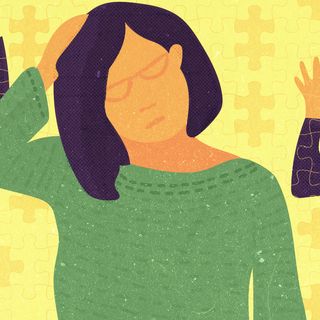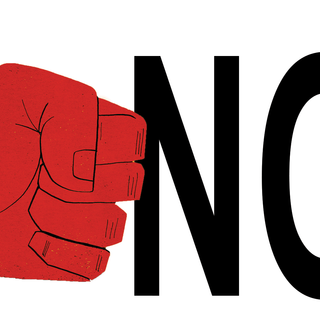Clad in a flowery shirt, with a red dupatta wrapped over wisps of graying hair, Ammu Abraham stood silently amidst a group of protesters, calmly observing them frantically milling about. At the #SupremeInjustice protest, Mumbaikars gathered to challenge the Supreme Court decision to give a clean chit to its Chief Justice, Ranjan Gogoi, after it conducted a partial, incomplete investigation into the sexual harassment allegations against him. Abraham, 70-something, seemed at ease, even as the atmosphere around her crackled with anticipation.
The reason for the serenity? Abraham has been taking to the streets to fight for women’s liberation since the 1970s. She has seen India’s autonomous women’s movement through thick and thin. And she has celebrated and lamented the creation of numerous laws — and their violations.
How do you feel having to be here one more time to fight for yet another woman’s constitutional right?
She smiles, launching into the details of her work as a women’s rights activist, narrating patiently, in a voice so low I had to lean forward, but in a tone so firm I got chills.
The autonomous women’s movement formed in the late 1970s in India, and Abraham was a key member of the Mumbai contingent. It all began when a 16-year-old girl was raped by two constables inside a police station, popularly called the Mathura rape case. While convicted in the sessions court, the Mumbai high court exonerated the two men, which spurred women’s groups across the country to mobilize against the miscarriage of justice.
Related on The Swaddle:
#SupremeInjustice: I Was Detained for Protesting the SC’s Clean Chit to the CJI
“Even the Supreme said that the girl did not shout; she had no injury marks. Basically, in that case they believed you can take it for granted that she must have consented. It’s a 16-year-old girl we are talking about,” Abraham said, shaking her head. “What protest is she going to do against policemen?”
Following widespread protests and advocacy from women’s rights lawyers and activists, custodial rape was declared punishable by law, and the burden of proof shifted from the accuser having to show criminality, to the accused having to prove innocence, Abraham recounted.
Almost a decade later, she protested yet another case that is said to have defined the women’s rights movement in India – the Bhanwari Devi rape case, wherein a Rajasthani woman who had taken a stand against child marriage was brutally raped by five men, was ostracized from her community, and still hasn’t received justice from the judicial system. The women’s rights movement, however, gained a significant victory in 1997, when five women’s groups filed a Public Interest Litigation in the Supreme Court against the government, and won a ruling, called the Vishakha guidelines, that details sexual harassment in the workplace and how to deal with it.
“Survivors are under a tremendous burden when they approach the court. It’s like being sexually assaulted all over again, having your dignity shred to pieces,” Abraham said. “Between the Bhanwari Devi case and today, we have had a lot of changes — sexual harassment in the workplace has been defined. That was the goal, to make it easier for women to go out and work, give them greater confidence to be able to participate in the workplace.”
But with the Supreme Court decision in the CJI case, those victories seem to have been rolled back. The SC justices, arguably the most intelligent minds of the country, are not able to read the Vishakha guidelines and put them into practice, Abraham said disapprovingly. The SC, of all institutions, should know how to show equality under the law, she added. “Without due process, people will not be able to make out whether justice has been meted out or not. That’s the point you lose faith in the judiciary. Every other institution has let us down. Now what will happen to the country?”
Calling the SC’s behavior “unseemly,” Abraham lamented how no amount of work and activism can codify a right forever. “Now, after all these years, we are coming to this stage once again. The struggles never end. No rights are once and for all won. Freedom is not once and for all won. It has to be defended again, and again.”
After a long and exhaustive narration of a longer and more exhaustive activism career, I ask again: How do you feel having to be here one more time to fight for yet another woman’s constitutional right?
“I guess it’s kind of a deep desire for a just world,” Abraham said. “If not in our time, then at least in our children’s and grandchildren’s time. One must fight for what’s right, child.”




